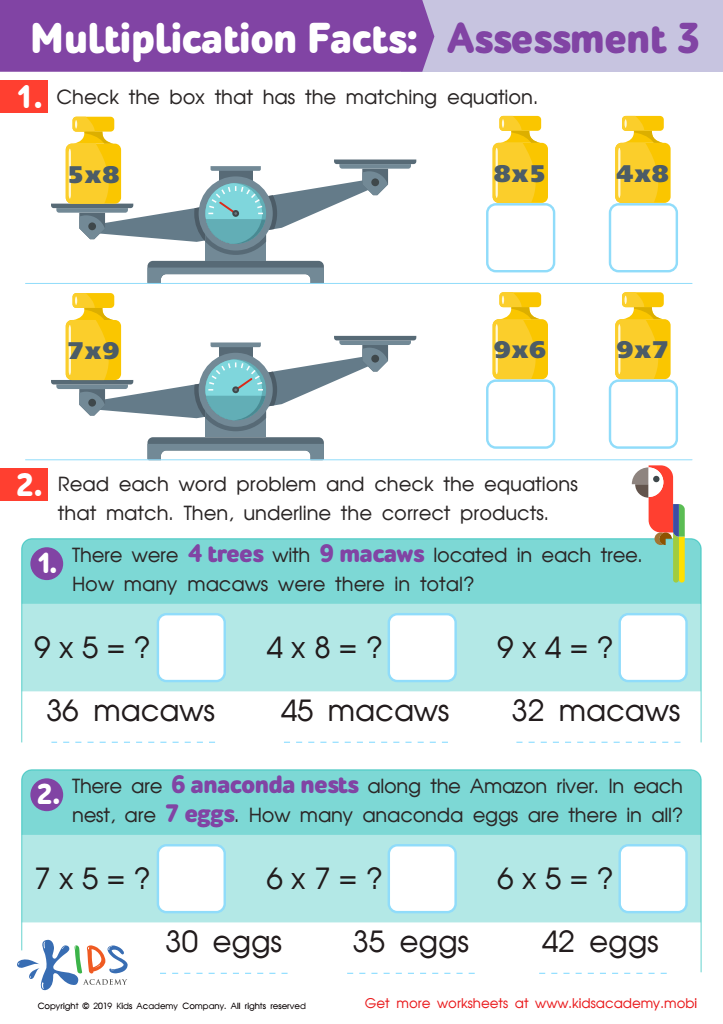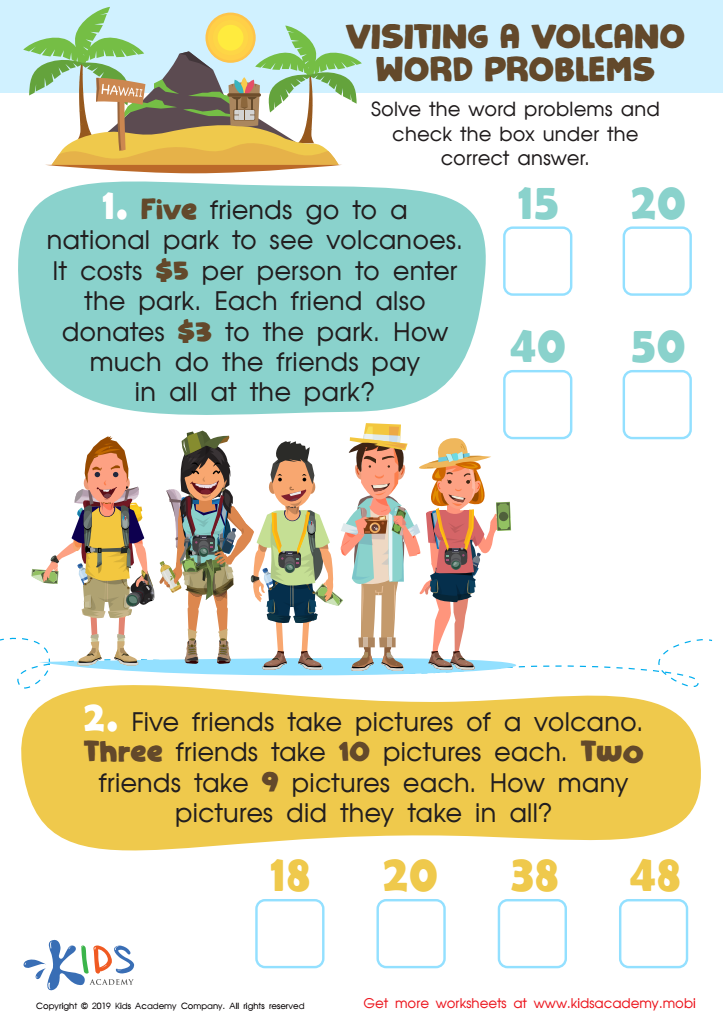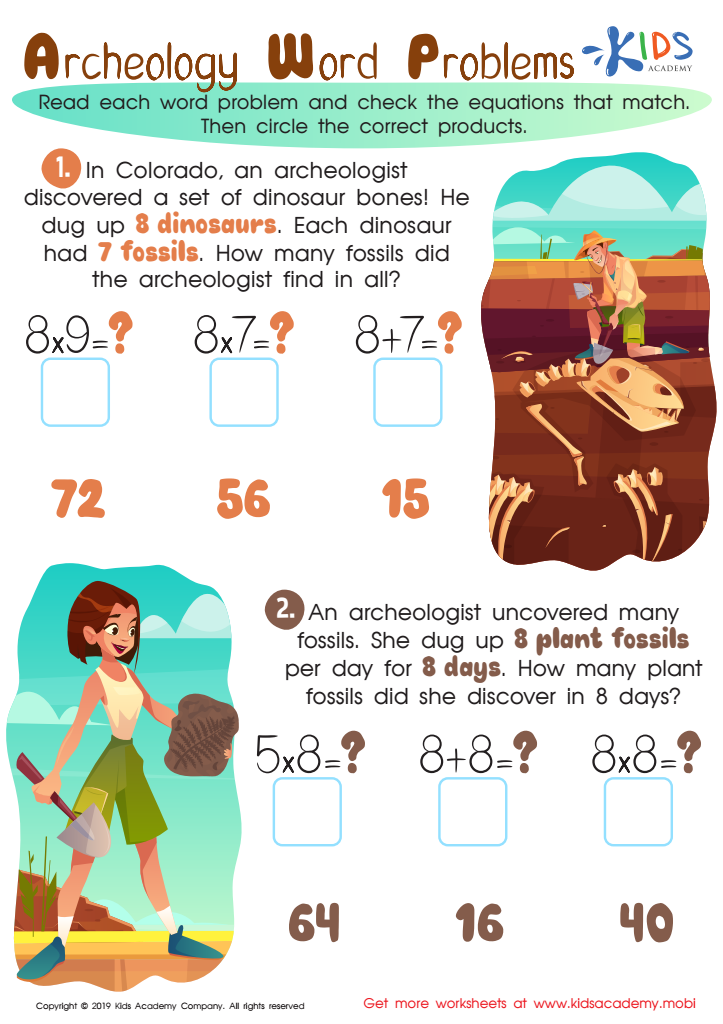Normal Multiplication Worksheets for Ages 5-6
3 filtered results
-
From - To
Our Normal Multiplication Worksheets for Ages 5-6 are designed to make learning multiplication fun and engaging for young learners. Specifically crafted for kindergarten and first graders, these worksheets introduce basic multiplication concepts through visually appealing graphics and simple exercises. The activities help children build a solid foundation in mathematics, fostering both understanding and confidence. Each worksheet is thoughtfully created to ensure comprehension and enjoyment, featuring colorful illustrations and a variety of tasks to aid in retention. Perfect for parents and teachers, these printable sheets are an ideal tool for supporting early math skills development in kids.


Multiplication Facts: Assessment 3 Worksheet


Visiting a Volcano Word Problems Worksheet


Archeology Word Problems Worksheet
Understanding multiplication at an early age lays the groundwork for future mathematical learning for children aged 5-6. Parents and teachers should pay attention to this because it builds critical thinking, problem-solving skills, and numerical fluency. At this tender age, children are like sponges, absorbing concepts that will shape their cognitive abilities.
Introducing multiplication helps children see patterns and relationships between numbers. For instance, recognizing that 2 groups of 3 equals 6 opens a gateway to understanding more complex mathematical ideas like division, fractions, and algebra later on.
Moreover, it strengthens their arithmetic skills, making future learning more intuitive. Mastering early multiplication can also build confidence. When children grasp this skill successfully, they gain a sense of achievement that motivates them to tackle more challenging problems with a positive mindset.
Additionally, understanding multiplication helps in real-life situations. For example, it aids kids in understanding basic economic transactions, sorting objects, and sharing equally among friends.
Parents' and teachers' focused attention ensures that children do not just memorize facts but truly grasp core mathematical concepts. Early educational support helps shape a generation that's not only proficient in everyday math but also geared towards analytical thinking and problem-solving in broader contexts. Hence, investing time and effort in teaching early multiplication is crucial.
 Assign to My Students
Assign to My Students















